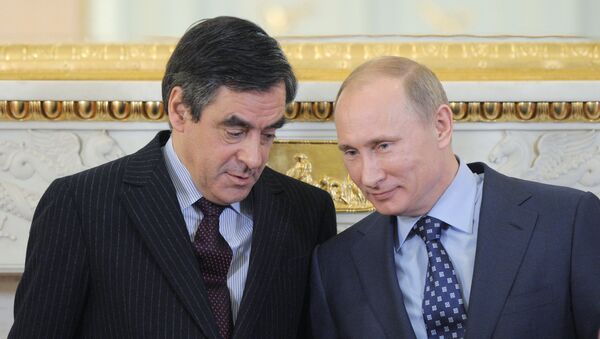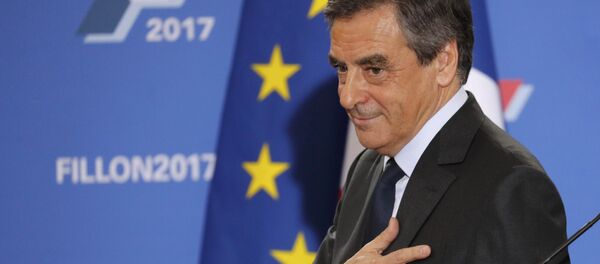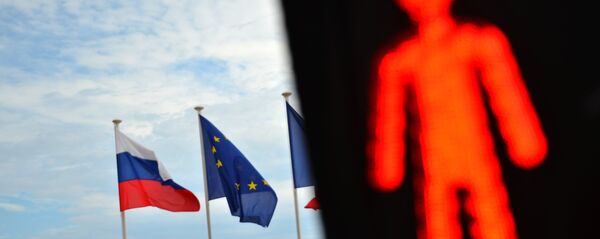In reality, Russia's hopes for France are much more modest. They are nothing like the monsters which Mr. Soros creates in his imagination. Contrary to the fake generalizations in the mainstream press, Russia has been looking for understanding not so much in the so called far-right parties inside the EU countries as in the established "center" of European politics. Francois Fillon and his Gaullist party The Republicans represent exactly that – the moderate "right of center" in the French politics.
In the years that followed the worsening of relations with the West after the Kiev coup in 2014, Russia invited even the former president Nicolas Sarkozy, the main architect of the Western intervention in Libya, to several forums in Moscow and St. Petersburg. The aim was not "to dominate Europe," but to find in France a minimally sensible politician, who would not see Russia as a "clear and present danger" (a preferred expression of French Russophobes). Finding such politicians in France would set a stage for a dialogue – an antonym to Mr. Soros's "color revolutions," touted by the Western media and despised by the people in the "revolutionized" countries, from Syria and Serbia to Georgia and Ukraine.
In April 2016, the French parliament, the National Assembly, recommended the lifting of sanctions against Russia.
And now Francois Fillon, an unexpected winner of the primaries in the French rightist party The Republicans, is voicing similar ideas about EU-Russian relations in general. To an unbiased observer, these truths are simple enough to be coming out of the mouth of babes, but for the mainstream media they are dangerous heresies.
"Has the West always been a reliable partner for Russia?" Fillon asked himself rhetorically during a recent interview to Le Monde daily. "Didn't we deceive Russia on Libya, on Kosovo, on the economic partnership with the EU?"
Despite his previous characterizations of Russia as a "dangerous" country, Fillon obviously went beyond the limits of the European mainstream on Russia when he called NATO's invitation for Georgia and Ukraine to join NATO in future "irresponsible."
"Why did we need to deploy anti-missile defense right near the Russian border? We made a lot of mistakes," Fillon said in that same interview.
This, however, did not deter Alain Juppe, Fillon's rival during the primaries of the French right, to "warn" his adversary against "excess of vodka during his meetings with Putin."
The lesson also did not go down well with Manuel Valls, the former Socialist prime minister, who is going through the leftist primaries right now in the hope of challenging Fillon later this year during the presidential election. Valls said he would "defend France against both the United States of Trump and Putin's Russia" if elected the president.
Will Russophobia play out for Mr. Valls? There is a strong doubt about this. Valls has already lost the first tour of Socialist primaries to the little known "red and green" candidate Benoit Hamon.
"People like Valls just don't understand that there is a certain fatigue about business as usual in Europe, and Russophobia is a part of the business as usual there," said Gevorg Mirzayan, a specialist on foreign relations at the Institute of US and Canada in Moscow.
Hopefully, the Russophobic part of the business as usual will come to an end. Russia wants only as much as that – and legitimately.
The views expressed in this article are solely those of the author and do not necessarily reflect the official position of Sputnik.






